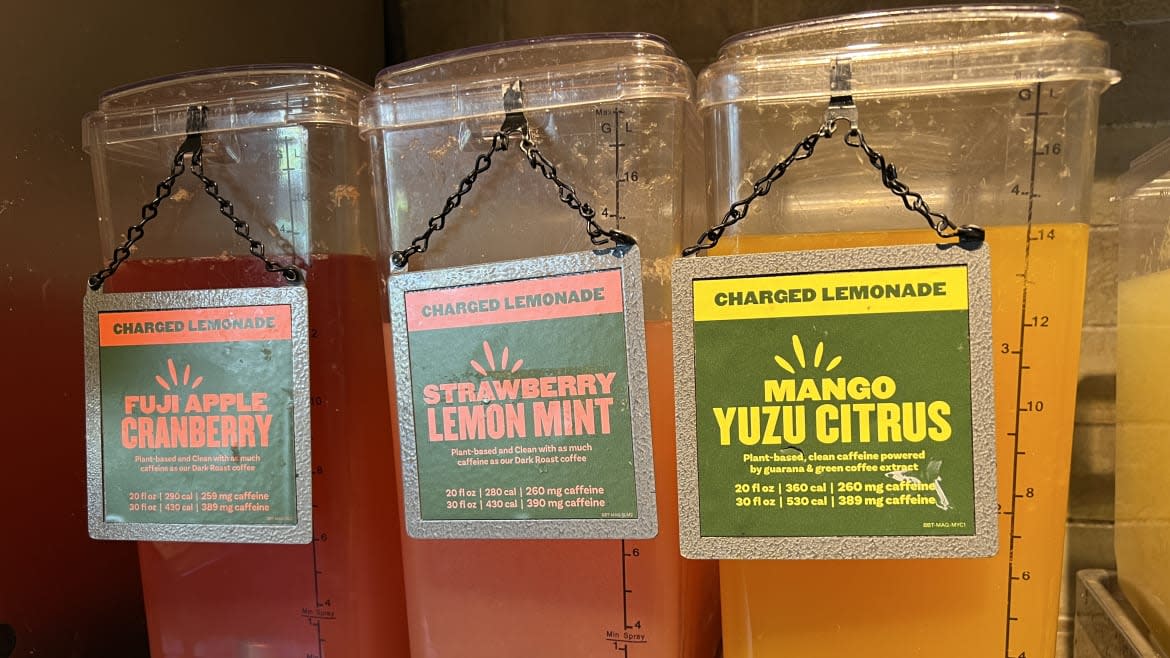Panera Bread Nixes ‘Charged Lemonade’ After Deaths

Three lawsuits later, Panera Bread is getting rid of its highly caffeinated “Charged Lemonade” drinks.
The chain plans to replace the infamous beverage with new drink options, over the course of the next two weeks, according to an internal memo sent to employees on Monday, which was obtained by Bloomberg. Not all Panera employees said they’d received the memo, however, according to NBC.
Panera framed the decision as part of a “recent menu transformation,” which will introduce several new products to its menu, according to Forbes, rather than a response to a recent spate of lawsuits, which allege “Charged Lemonade” is dangerous to consume.
The drinks were first launched in April 2022.
In October, the family of Sarah Katz sued Panera, after the 21 year-old woman with a heart condition died after imbibing in the fruity energy drink. According to the wrongful death lawsuit, the drink contains a “dangerous” 390 milligrams of caffeine in a 30-ounce sized drink, which is notably more caffeine than one can get in a can of Red Bull (80 mg) and Monster (86 mg) combined.
The company responded to the first lawsuit by placing disclaimers on its website and in its restaurants, warning that the drink was not recommended for some. Panera also updated the nutrition information to reflect how much caffeine the “Charged Lemonade” contained per serving, when served with ice. The number was slightly less, around 230 mg depending on the flavor, but still high. The Food and Drug Administration recommends people only consume 400 mg of caffeine per day.
In December, the family of 46-year-old Dennis Brown sued Panera, alleging that he had died after drinking three servings of “Charged Lemonade.”
A month later, 28 year-old Lauren Skerritt sued the company alleging that she had gotten “permanent cardiac injuries” from drinking Charged Lemonade, even though she’d had no underlying health conditions.
Attorney Elizabeth Crawford, who is representing the plaintiffs in their lawsuits against Panera Bread told NBC that the decision to remove the “poison” was a “good step.”
“Obviously, it won’t bring back Sarah, and it won’t bring back Dennis, and the life that Lauren used to have,” she said. “But at least what it will do is prevent this from happening to someone else.”
Get the Daily Beast's biggest scoops and scandals delivered right to your inbox. Sign up now.
Stay informed and gain unlimited access to the Daily Beast's unmatched reporting. Subscribe now.


